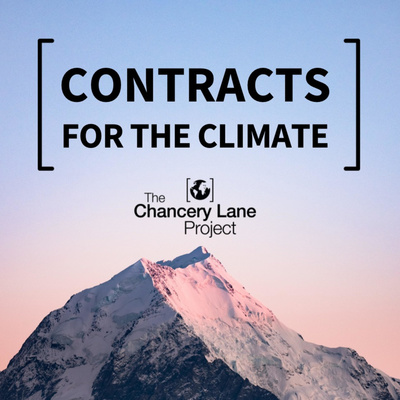Contracts for the Climate: The Importance of Emissions Benchmarking

The importance of emissions benchmarking is the focus of the latest episode in the Contracts for the Climate podcast series. The series from The Chancery Lane Project (TCLP) focuses on the built environment and how lawyers can get climate-friendly clauses into contracts.
Thomson Reuters has long supported TCLP, which brings legal professionals together to draft clauses and other legal resources that lawyers, businesses, and governments can use to support the fight against climate change.
In the fifth and final episode, Becky Annison, TCLP director of engagement, talks with Jenny Cohen of Herbert Smith Freehills about Izzy’s Clause. TCLP uses a child’s name for each clause to encourage a focus on the next generation, which will be most affected by the climate crisis.
Izzy’s Clause enables buyers or principals to benchmark a contractor’s greenhouse gas emissions against market competitors. Annison and Cohen discuss the importance of emissions benchmarking and how the clause can make an impact on climate change.
The fourth episode featured Owen Collins from Matheson and Tabitha Gould and Isobel Annan from Burges Salmon. They explored Ayshe’s Clause, which obliges suppliers of renewable energy technology to lower their carbon emissions, minimize environmental impact, and safeguard against modern slavery.
They discussed the importance of holding renewable energy suppliers to the same standards as other construction projects. They noted that the clause’s flexibility makes it applicable to all parties in renewable energy supply chains.
In the third episode, Diane Harris of MDY Legal and Mark Norris of Sullivan & Worcester discussed Rose’s Clause. It makes development finance conditional upon a project adopting a whole-life decarbonization management plan. They talked about why the clause focuses on mechanisms for corrective action, and how climate clauses provide on-the-ground solutions for addressing climate goals.
The second episode featured Josh Gibbons from Addleshaw Goddard, who highlights Tristan’s Clause, which sets formal carbon budgets to incentivize emissions reductions through use of sustainable materials. He explained how the clause provides a climate solution for current procurement practices and how changes in the industry are encouraging sustainable contract drafting.
The series kicked off with Chirag Rao from Howard Kennedy LLP. He discussed Aatmay’s Clause, which provides a solution for circular economy principles in lease arrangements. He explained what the circular economy is and how it can work in leases, and how the clause encourages landlords and tenants to re-use goods and materials.